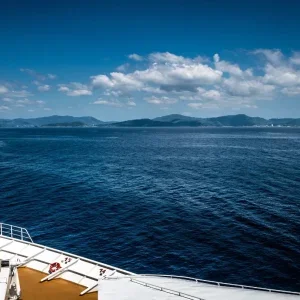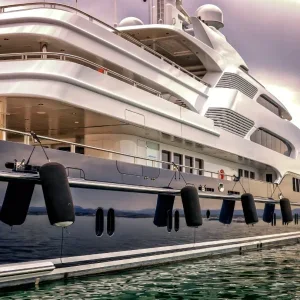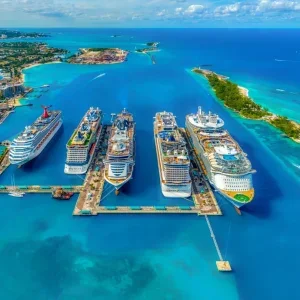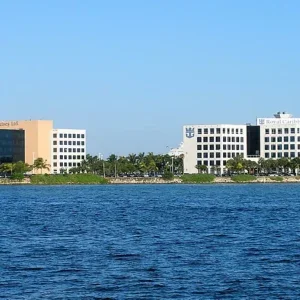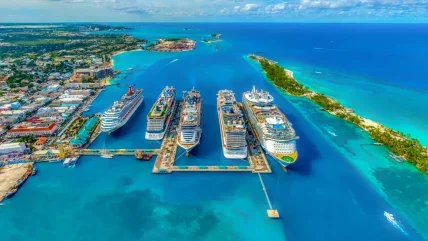
In the dynamic and multifaceted world of global business, the cruise industry stands out as a symbol of luxury, adventure, and economic prosperity. However, beneath the glittering surface of this thriving sector, there are significant challenges that can disrupt its smooth sailing. One of the most pressing issues facing the cruise industry today is the impact of interstate armed conflicts. This article delves into how such conflicts affect the cruise industry, examining key areas such as operational disruptions, safety concerns, economic implications, and strategic responses.
The Geopolitical Landscape and the Cruise Industry
Interstate armed conflicts, defined as open hostilities between sovereign states, have far-reaching consequences that extend beyond the immediate theatre of war. The cruise industry, with its reliance on safe and stable international waters, is particularly vulnerable to such geopolitical upheavals. The interconnected nature of global travel means that a conflict in one region can have ripple effects across the industry.
Regional Instability and Operational Disruptions
The first and most direct impact of interstate armed conflicts on the cruise industry is the disruption of operations. Conflict zones and surrounding areas often become no-go zones for cruise ships due to the heightened risks. For example, the ongoing conflict in Ukraine has significantly affected the Black Sea region, a popular cruise destination. Cruise lines have had to reroute their ships, cancelling stops in affected areas and adjusting itineraries to avoid conflict zones.
These operational changes not only inconvenience passengers but also lead to increased operational costs for cruise companies. Rerouting ships requires additional fuel, logistical planning, and sometimes, longer journey times. Furthermore, ports in neighbouring countries may become overwhelmed with rerouted ships, leading to congestion and further logistical challenges.
Safety and Security Concerns
The safety of passengers and crew is paramount in the cruise industry. Interstate armed conflicts raise significant safety and security concerns, leading to stringent measures and heightened alertness. Cruise lines must navigate through or near conflict zones with increased caution, often in coordination with international maritime security agencies.
Piracy and Maritime Security
In regions where interstate conflicts coincide with high levels of piracy, such as off the coast of Somalia, the security risks are compounded. Cruise lines operating in these waters must invest heavily in security measures, including hiring security personnel, implementing onboard security protocols, and sometimes even altering their routes to avoid high-risk areas.
Insurance and Liability
The increased risk associated with operating near conflict zones also impacts insurance premiums for cruise ships. Higher premiums reflect the elevated risk of damage, delay, or loss due to conflict-related incidents. In some cases, insurers may refuse to cover ships travelling through particularly dangerous areas, forcing cruise lines to reconsider their routes and operational strategies.
Economic Implications
The economic ramifications of interstate armed conflicts for the cruise industry are profound. The direct costs associated with rerouting and enhanced security measures are just the tip of the iceberg. The broader economic impacts include reduced tourism revenue, fluctuating currency exchange rates, and disrupted supply chains.
Tourism Revenue and Port Cities
Port cities heavily reliant on tourism from cruise ships suffer significant economic losses during conflicts. For example, the Syrian conflict has not only destabilised the country but also affected neighbouring regions that once thrived on tourism. The loss of cruise traffic leads to reduced income for local businesses, from restaurants and shops to tour operators and taxi services. This economic downturn can have long-lasting effects on the local economy, making recovery challenging even after the conflict subsides.
Currency Fluctuations
Interstate conflicts often lead to economic sanctions, embargoes, and volatile currency exchange rates. Cruise lines operating in or near conflict zones must navigate these economic uncertainties, which can affect their pricing strategies, profit margins, and overall financial stability. For instance, a conflict that destabilises a region’s currency can make it more expensive for cruise lines to procure local goods and services, thereby increasing operational costs.
Strategic Responses and Industry Adaptation
In response to the multifaceted challenges posed by interstate armed conflicts, the cruise industry has developed several strategic responses. These strategies aim to minimise disruptions, ensure safety, and maintain economic viability.
Diversification of Itineraries
One of the primary strategies employed by cruise lines is the diversification of itineraries. By offering a broader range of destinations, cruise companies can mitigate the risk associated with any single region. This approach not only reduces dependence on conflict-prone areas but also attracts a wider customer base looking for varied travel experiences.
Investment in Technology
Technological advancements play a crucial role in enhancing the safety and efficiency of cruise operations. Satellite communication systems, real-time tracking, and advanced navigation tools help cruise lines monitor conflict zones and make informed decisions about route adjustments. Additionally, technology enables better coordination with international maritime security agencies, ensuring timely responses to emerging threats.
Collaboration with International Agencies
The cruise industry often collaborates with international agencies such as the International Maritime Organization (IMO) and the World Health Organization (WHO) to develop and implement safety protocols. These collaborations ensure that cruise lines are well-prepared to handle emergencies and that their operations comply with international safety standards.
Crisis Management and Contingency Planning
Effective crisis management and contingency planning are essential for navigating the uncertainties of interstate armed conflicts. Cruise lines must develop comprehensive plans that include evacuation procedures, communication strategies, and alternative routes. Regular drills and training programmes for crew members ensure that they are prepared to handle emergencies efficiently and effectively.
Case Studies: Cruise Industry Responses to Conflict Zones
To illustrate the cruise industry’s adaptability and resilience in the face of interstate armed conflicts, it is useful to examine specific case studies.
The Ukraine Conflict and the Black Sea Cruises
The conflict in Ukraine, which escalated significantly in 2014, had a profound impact on Black Sea cruises. Major cruise lines, including Royal Caribbean and MSC Cruises, cancelled their Black Sea itineraries and redirected their ships to safer waters. This decision not only ensured the safety of passengers and crew but also highlighted the industry’s ability to respond swiftly to geopolitical changes.
The Arab Spring and Mediterranean Cruises
The Arab Spring, a series of uprisings that began in 2010, affected several Mediterranean countries, including Egypt, Tunisia, and Libya. In response, cruise lines adjusted their itineraries to avoid affected regions. For example, Norwegian Cruise Line and Carnival Corporation shifted their focus to Western Mediterranean destinations, while continuing to monitor the situation in the Eastern Mediterranean.
The Somali Piracy Crisis
The rise of piracy off the coast of Somalia in the early 2000s posed a significant threat to maritime travel, including the cruise industry. Cruise lines responded by enhancing security measures, such as deploying armed guards, using high-pressure water cannons, and installing secure safe rooms on their ships. Additionally, they altered their routes to avoid the most dangerous waters, demonstrating their commitment to passenger and crew safety.
Conclusion: Steering Through Uncertainty
Interstate armed conflicts present substantial challenges for the cruise industry, impacting operations, safety, and economic stability. However, the industry’s resilience and adaptability are evident in its strategic responses to these challenges. By diversifying itineraries, investing in technology, collaborating with international agencies, and implementing robust crisis management plans, the cruise industry continues to navigate through uncertain waters.
As geopolitical tensions evolve, the cruise industry’s ability to adapt and innovate will be crucial in maintaining its growth and ensuring the safety and satisfaction of its passengers. For stakeholders, including cruise companies, port authorities, and tourism-dependent communities, understanding and addressing the impact of interstate armed conflicts is essential for sustaining a vibrant and resilient cruise industry.


